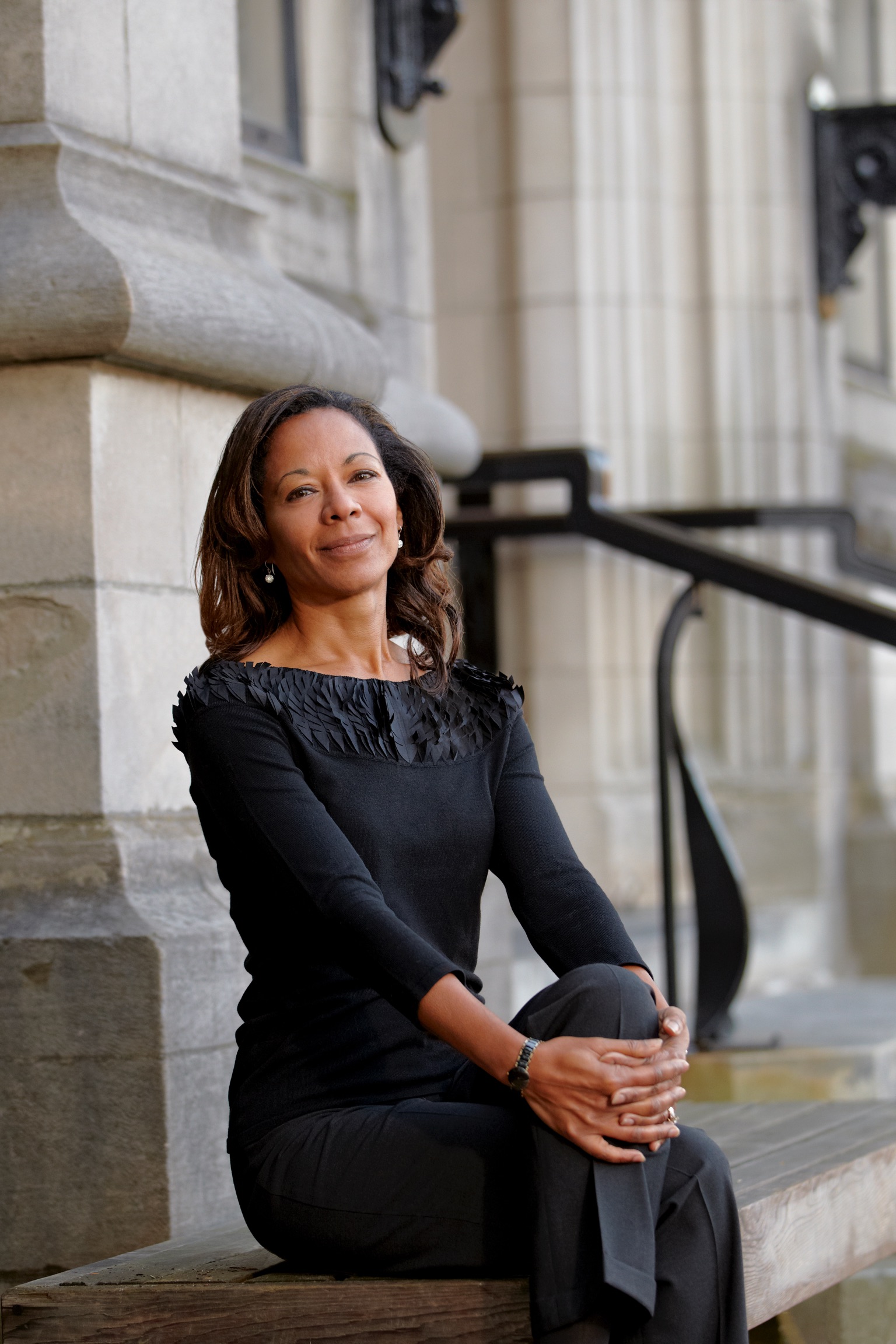Tamara Nikuradse: Africana Studies after Bowdoin
November 8, 2019
 Courtesy of Tamara Nikuradse '84
Courtesy of Tamara Nikuradse '84Tamara Nikuradse ’84, P’21 carefully organizes the library in her fifth grade classroom at Dana Hall, an all girls school in Wellesley, Massachusetts.
“I feel that my one of my responsibilities, especially as a woman of color, is to expose the students to other cultures and histories of other people. I try to make sure that I have books that have protagonists from different races,” she said as she listed off titles.
Together, Nikuradse and her students read books about sharecroppers in Mississippi, riots in Illinois and boycotts in Alabama. They get to know characters who are refugees from the Middle East, immigrants from Central America and expatriates from Eastern Europe. They make videos about the 1963 Children’s March, the Brown v. Board of Education decision and the Little Rock Nine.
But Nikuradse wouldn’t have curated a curriculum with “something in there for everyone” without her Bowdoin degree.
“I think having that experience as an Afro-American Studies major at Bowdoin has opened up so much and opened me up to voices not always heard,” she said. “As a fifth grade teacher, I make sure to bring voices from all different walks of life [into the classroom] and help my girls see that they live in this bubble of MetroWest Boston, and that there is a wider world out there.”
Nikuradse, the 10th person to graduate from Bowdoin as an Afro-American Studies major (now Africana Studies), will be returning to campus today to sit on a panel titled “A Seat at the Table: A Forum with Alumnae Leaders.” An active supporter of the Africana Studies program, she chaired the Board of Trustees’ multicultural committee and ran the Alumni Council’s multicultural committee.
As a student and as an alumna, Nikuradse has dedicated herself to diversifying the student body. During her four years at Bowdoin, she worked for the Office of Admissions and started A Better College, a club aimed at improving campus life for students from all backgrounds.
While on the Alumni Council, Nikuradse organized a phone drive to recruit students of color. She and other alumni would call students who had been admitted to the College and try to convince them to attend Bowdoin.
“It was amazing, over the course of three years, to see the numbers increase in terms of the percentage of students coming. I remember being so excited when Bowdoin got to 20 percent students of color, I just couldn’t believe it,” she said. “And one of the reasons they were able to achieve that was the fact that [alumni] were making these phone calls.”
Despite these efforts, keeping alumni of color connected to the College proved difficult; not all the alumni of color remember their days at Bowdoin as fondly as she has.
“There were a lot of alums who graduated in the late ’70s and through the ’80s and into the early ’90s who did not have a great experience at Bowdoin socially, so they were very disconnected,” Nikuradse said. “I think, because I had some strong personal relationships across different racial groups, maybe my experience was a little bit different.”
Nikuradse started dating her now-husband Scott Matthews ’84 P’21, who is white, during her sophomore year and she admits that a lot of her social life revolved around him. Although she had many friends who were African American, Nikuradse attended all-white schools from age nine to 16 and “was used to being in an all-white environment.”
Nonetheless, having served as the vice president of the African American Society her junior year and as the house manager for the Russwurm African American Center for two summers, she knew every African American student, and knew them all well.
“You could count on two hands the number of African Americans that were in my graduating class,” she said.
But this weekend, Nikuradse is hoping to meet more Black students.
“I’m looking forward to hearing stories from other [alumni] from other eras about their experiences at Bowdoin, both the good and maybe the not so good,” she said. “I’m hoping to share my experiences with current students and learn about their experiences at Bowdoin. I see it as a dialogue between people of different generations.”
She is grateful that her Afro-American Studies major has helped her to be a more understanding teacher and, in her previous career in marketing, a more conscientious executive.
“The bottom line is that no matter how challenging our experiences were at Bowdoin on a social basis [as Black students,] Bowdoin opened up so many opportunities for us, and for myself personally,” she said.
Perhaps, sometime down the line, one of her students will graduate from Bowdoin and benefit from those opportunities. But for now, they will continue to read about different cultures and perspectives, and learn that “the origins of humans start in Africa.”
“It’s very important to me that my students understand that,” she said.
Nikuradse will speak at “A Seat at the Table: A Forum with Alumnae Leaders” today at 1 p.m. in Kresge Auditorium.
Celebrating Af/Am/50

Comments
Before submitting a comment, please review our comment policy. Some key points from the policy: